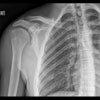
BARCELONA, Spain (Reuters Health), Sep 6 - Drug-eluting stents are most advantageous when used in small coronary arteries or in bypass grafts, according to findings from a team of Swiss cardiologists who reported their results at the 15th World Congress of Cardiology here.
Reporting the results of the BASKET (Basel Stent Cost Effectiveness Trial), Dr. Christoph Kaiser, of the University Hospital Basel, Switzerland, said that when comparing blood vessels smaller than 3 mm in diameter with blood vessels 3 mm or larger, the Cypher (sirolimus-eluting stent) or the Taxus (paclitaxel-eluting stent) performed significantly better in the smaller vessels or bypass grafts than did bare metal stents.
Conversely, in the larger vessels there were no statistical differences in outcomes, said Dr. Kaiser.
In the BASKET study, 264 patients received Cypher stents, 281 were treated with Taxus stents and 281 with bare metal stents.
Overall, the rate of death or myocardial infarction was 8.4% for patients treated with drug-eluting stents and 7.5% for bare metal stents, a difference that did not reach statistical significance (p = 0.63), he said.
But the target vessel revascularization rate was significantly higher in the bare metal stent arm, 11.6% versus 7.5% for patients treated with drug-eluting stents (p = 0.05).
The overall major adverse cardiac event rate at 18 months was 15.8% for drug-eluting stents and 18.9% for bare metal stents, a difference that failed to reach statistical significance, (p = 0.26).
The patients in the trial were overwhelmingly men (79%) and were an average age of 64 years of age. Forty-two percent of patients had stable angina, 36% had unstable coronary syndromes and 21% of patients treated were suffering acute myocardial infarctions,
"Overall only stenting of bypass grafts and stenting at least one small vessel (<3.0 mm) showed significant interactions between stent type and two of the three main end points (non-infarct related target vessel revascularization, death/MI, and major event rate," Dr. Kaiser said. He suggested that "drug-eluting stents should be reserved for use in small vessels or bypass grafts because it is here that they have demonstrated a benefit."
"These results add to the body of knowledge, especially that outcomes vary with the type of lesion," said Dr. Raymond Gibbons of the Mayo Clinic in Rochester, Minnesota and president of the American Heart Association. "We are seeing a smaller benefit of the drug-eluting stents with larger blood vessels."
By M. Mary Conroy
Last Updated: 2006-09-05 16:14:24 -0400 (Reuters Health)
Related Reading
Boston Scientific reaches halfway point in drug-eluting stent trial, August 31, 2006
Copyright © 2006 Reuters Limited. All rights reserved. Republication or redistribution of Reuters content, including by framing or similar means, is expressly prohibited without the prior written consent of Reuters. Reuters shall not be liable for any errors or delays in the content, or for any actions taken in reliance thereon. Reuters and the Reuters sphere logo are registered trademarks and trademarks of the Reuters group of companies around the world.
















